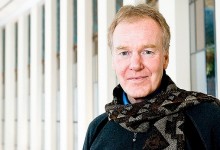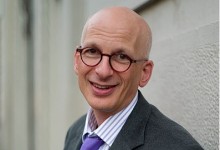I have grown up with the firm belief that in order to achieve something in life you need to have a degree. Although I resent that statement with all of my heart I have come to a point that I no longer can deny it.
There are three ‘M’s involved in explaining why I capitulate to the non-sense of the way things are. They are: Matthew Effect, Membership and Mindset.
Matthew Effect
For to all those who have, more will be given, and they will have an abundance; but from those who have nothing, even what they have will be taken away.
—Matthew 25:29
Those who have shall be given – and if you happen to be on the other side: bad luck. But it’s more subtle than one may think at first sight. In his book Outliers: The Story of Success, Malcolm Gladwell compares the misfortune of the genius Chris Langan to the successful achievements of another genius: Robert Oppenheimer.
Both men were equally gifted, so the Matthew effect is not applicable on first sight. However, Gladwell states that – while both men were comparable in terms of intelligence – it is their sense of entitlement that has shaped the opportunity (or lack thereof) to grow and have a successful career.
Being talented, good-looking, intelligent, etc. may be the entry criterion for the achievement contest we call life; eventually it is the access to opportunities that will determine the outcome.
Membership
When researching the main causes of hunger and poverty in Third World countries, 1998 Nobel Prize winner Amartya Sen discovered that hunger is not caused by a lack of food, but by a lack of entitlement.
In the book Poverty and Famines: An Essay on Entitlement and Deprivation he demonstrates that famine occurs not only from a lack of food, but from inequalities built into mechanisms for distributing food.
At the age of nine, Sen witnessed the Bengal famine of 1943. Later he concluded that the loss of 3 million lives was unnecessary. He presents data that there was an adequate food supply in Bengal at the time, but particular groups of people including rural landless laborers and urban service providers like haircutters did not have the monetary means to acquire food.
Mindset
Back to the importance of degrees and the perversity of entitlement. Although entitlement was described by Sen as a matter of having the opportunity to influence your own mortality, I recently came to think of it as an illusion. It seems to me that entitlement to the fruits of a degree is mostly felt by those on the lower side of the glass ceiling.
I also think that the ignorance of how little a degree is worth once you crossed that fence, makes people blind to the real gravitational forces of the Matthew effect. That is: it pulls people down, not up.
A degree is a hygiene factor in terms of Herzberg’s two-factor theory: it is necessary, but not sufficient to succeed. It doesn’t push you up, but lacking it can pull you down.
Tragedy
The tragedy of it all is that it is the degree-less people with the most outspoken talents who suffer the most from this downward spiral of I-am-not-worthy-ness. They carry the lack of entitlement as a burden every day.
They are the victims of a ‘false negative‘ or simply a stupid coincidence. As a consequence, this world not only suffers an inflation of stock markets. Most of all, it suffers an inflation of degrees.
Hope
Ken Robinson, who recently published ‘The Element: How Finding Your Passion Changes Everything‘ became popular after his 2006 TED talk titled “Do Schools Kill Creativity?” In this talk he makes the case for a radical shift from standardized schools to personalized learning.
Conformity
Many of our ideas have been formed not to meet the circumstances of this century but to cope with the circumstances of previous centuries. However, our minds are still hypnotised by them. In other words: college degrees – just like CV’s – are a form of entitlement that made sense in the previous centuries but not anymore. Yet, they continue to rule our lives.
Robinson goes on to talk about the root cause: conformity and a longing for the ‘future quo’. We have built our education systems on the models of fast food: everything is standardized instead of customized to local circumstances. In turn, this is impoverishing our spirits and our energies in the same way that fast food is downgrading our physical bodies.
Passion
He concludes that passion and not conformity is needed to cope with today’s challenges. Doing stuff that feeds your spirit. The kind of thing you are doing when time seems to fly. Like Seth Godin in his book Linchpin: Are You Indispensable?, Ken Robinson links the search for passion to the end of the industrial revolution.
We need to get out of our industrial model of education, which is based on linearity and conformity to an organic model. And with it we need to abandon our attachment to the entitlement of a degree.
Gardening
The one thing we need to understand is that learning and education are organic instead of manufacture-like. As Peter Senge is often quoted:
“We keep bringing in mechanics–when what we need are gardeners. We keep trying to drive change–when what we need to do is cultivate change.”
The only difference between a mechanic and a gardener is the entitlement of their degree and time has come to recalibrate these degrees to the challenges of today’s world.





